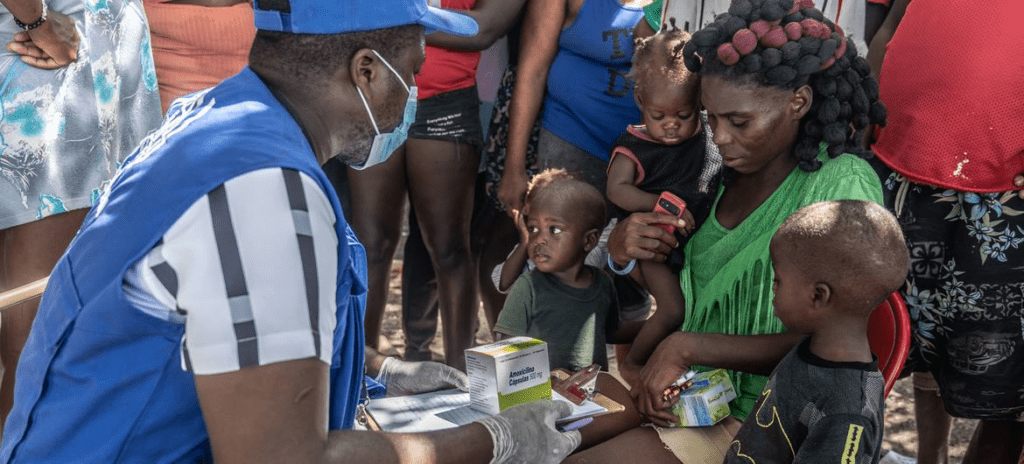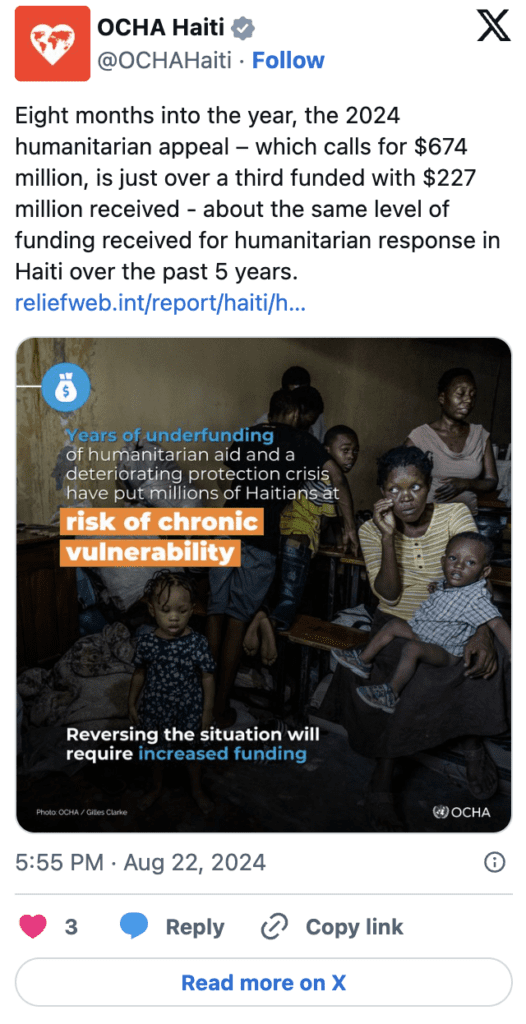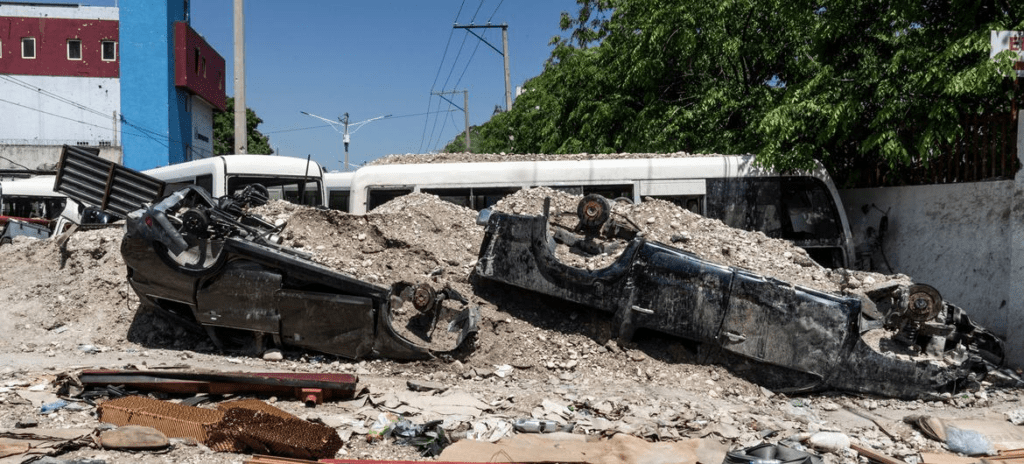
United Nations, 22 August 2024
Years of underfunding of humanitarian aid and increasing needs have put millions of Haitians at risk of chronic vulnerability, according to a newly released UN report.
Reversing the situation will require the international community and donors to increase the funding of UN and non-governmental organization (NGO) relief operations, the UN humanitarian office, OCHA, said in its latest advocacy note.
Growing hunger and needs
Months of violence have led to a deterioration of Haiti’s humanitarian crisis. Displacement has tripled in the last year in Haiti as gang violence continues to rock the Caribbean-island nation, with nearly 600,000 people on the run.
“The indiscriminate violence of armed groups and the near collapse of basic services have plunged Haiti into a humanitarian crisis unprecedented since 2010,” OCHA reported, referring to the devasting earthquake that struck the nation 14 years ago.
Following the spiralling security situation in the capital, Port-au-Prince, and Artibonite in the north in February, the number of displaced persons has soared by 60 per cent, the report showed, using the latest figures from the International Organization for Migration (IOM) data tracking matrix for Haiti.

Collapsing basic services
The violence continues to target civilian infrastructure, with only 24 per cent of hospitals remaining operational, OCHA reported. The insecurity has also left 1.5 million children shut out of classrooms.
Half of the 578,000 displaced people, desperately fleeing the capital in search of safety, had made their way south, where the vast majority are staying with already economically vulnerable host families.
However, basic social services, such as education, health and water, hygiene and sanitation, already insufficient to meet the needs of the local population, have been severely strained, OCHA reported.
Forced deportations
Meanwhile, forced repatriations of Haitians from countries in the region is continuing.
Indeed, deportations of Haitian nationals even increased, particularly from April onwards, when incidents of violence were at their peak, OCHA reported.
In the first seven months of the year, nearly 100,000 people were deported from countries in the region to Haiti, according to data from IOM.
‘Wave of violence’
The violent clashes between gangs and the authorities have also persisted, even as the multinational security support mission arrived in late June to help Haitian police address the ongoing crisis.
“This wave of violence continues to have humanitarian consequences on the populations of the affected neighbourhoods and localities, but also in areas far from the capital which have become host lands for hundreds of thousands of people,” OCHA stated in the report.
Almost 300,000 malnutrition cases have been documented, and five million people, about 50 per cent of Haiti’s population, face heightened food insecurity, according to a report earlier this year by a global monitoring group, the Integrated Food Security Phase Classification (IPC).
Fears the crisis will spread
There are fears that the epicentre of the current humanitarian crisis will gradually shift to an increasing number of areas previously spared by insecurity, according to OCHA.
At the same time, the current hurricane season is expected to be active and could cause an additional shockwave on the daily lives of Haitians.
Haiti is bracing for between four and seven major storms in the months to come.

Calls to fill funding gaps
Additional financial resources are urgently needed to meet the increased needs of the Haitian population affected by this multidimensional crisis, OCHA said in its report.
Without additional funds, OCHA fears that these crises will continue.
Humanitarian concerns abound that food insecurity will continue to spread, hundreds of thousands of out-of-school children will face the risk of recruitment by armed groups and experience “lost years”, growing up without the skills needed for their future and survival, and that half a million vulnerable children and victims of protection incidents will be deprived of mental health services and psychosocial support, according to OCHA.
“While humanitarian assistance is a lifeline for many, it is only part of the solution,” the UN agency said.
“The government, political and development actors must work together to find lasting solutions to Haiti’s structural challenges,” OCHA said, echoing a call made last month by a joint UN-European Union mission to the country.
Eight months into the year, Haiti’s 2024 Humanitarian Response Plan is 33 per cent funded, having received $162.5 million out of $674 million.
The original article appeared here.